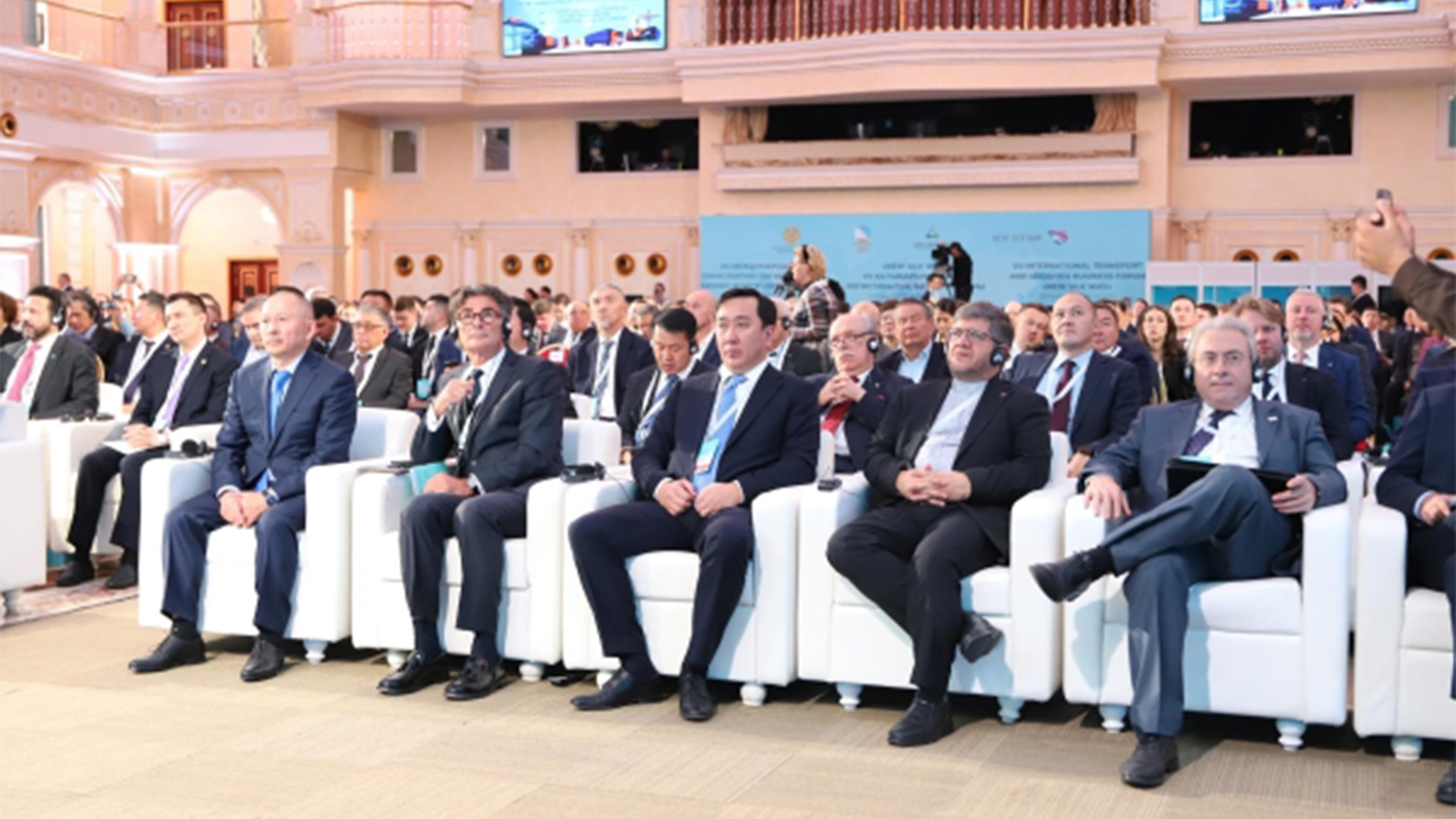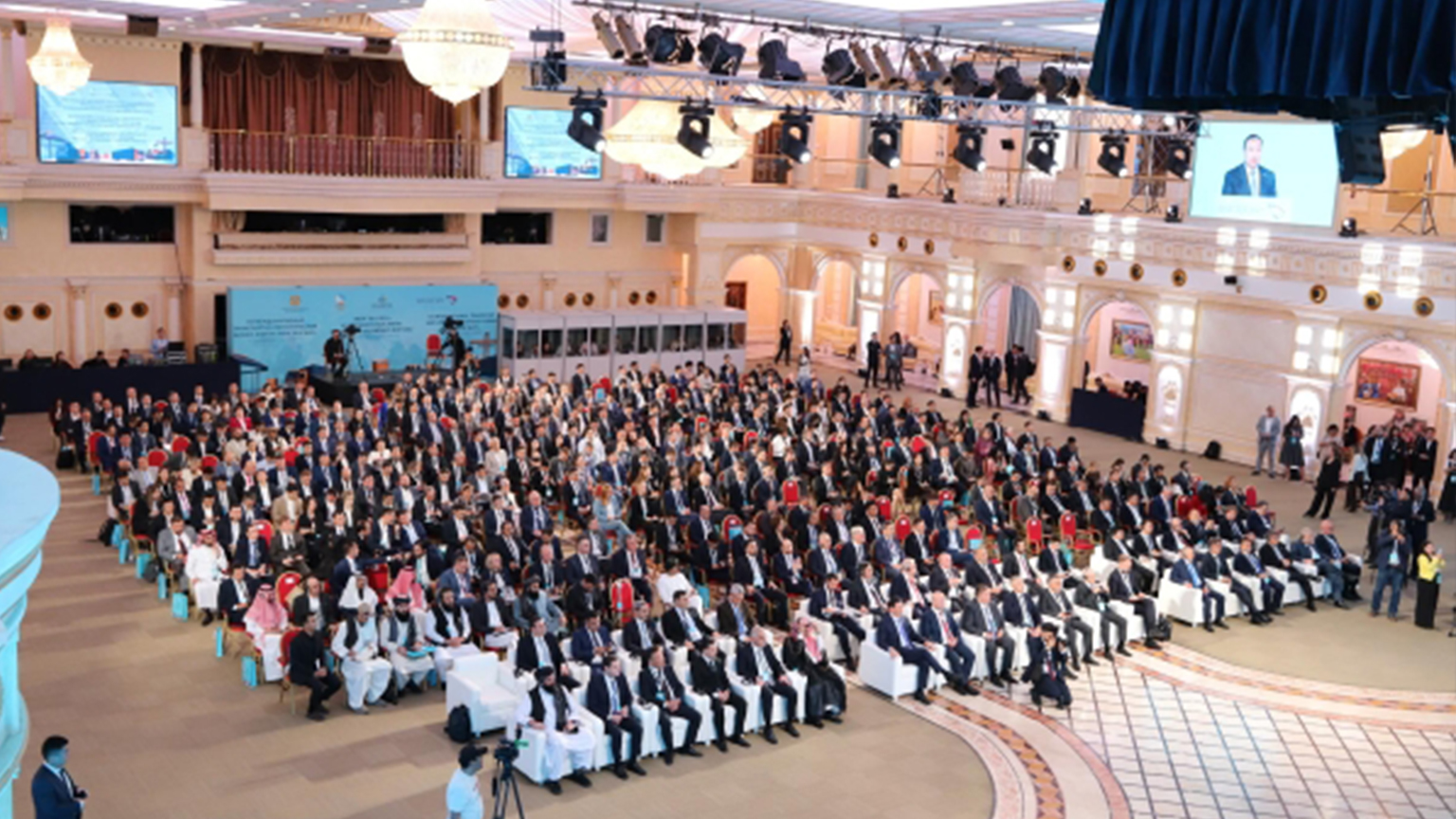With over 1,000 delegates at Kazakhstan's major transport and logistics event this week, IRU highlighted road freight’s transformative role in Central Asia and Eurasia in recent decades, and the need to now focus on the “three Ds” in addition to the overarching “D”, development.
Delegates from 33 countries attended the “Seventh International Transport & Logistics Business Forum: New Silk Way”, organised by Kazakhstan’s Ministry of Transport, in Almaty. Opening the event via video conference, Kazakhstan’s President underlined transport and logistics as drivers of the economy and international cooperation.
Following the president’s remarks and the ministers’ strategic session, IRU Secretary General Umberto de Pretto delivered a keynote speech. He recalled how, 25 years ago, IRU and its members led pilot operations, under the NELTI project, testing the feasibility of China–EU road deliveries along northern, central and southern routes.
“While many politicians and businesses were sceptical about the project, it proved visionary, connecting major manufacturing and consumption regions via Eurasian and Central Asian countries,” said Umberto de Pretto.
The project’s outcomes triggered key developments such as the construction of the game-changing “Western Europe–Western China” corridor to China’s accession to the TIR Convention and the modernisation of international road transport agreements. Today, China–EU road deliveries are routine, slashing costs and transport times.
Umberto de Pretto also underscored the importance of resilience. “Resilient, sustainable connectivity requires a resilient, sustainable road transport sector. This is central to IRU’s work to advance the industry around the world, with a particular focus on what we call the “three Ds”: driver shortage, digitalisation and decarbonisation.”
At the event, IRU members from seven countries – ABADA, AIRCUZ, ASMAP, AIRTO KR, BAMAP, KAZATO and THADA – echoed these messages, sharing insights on how to jointly strengthen the sector by removing barriers to trade and transport.



